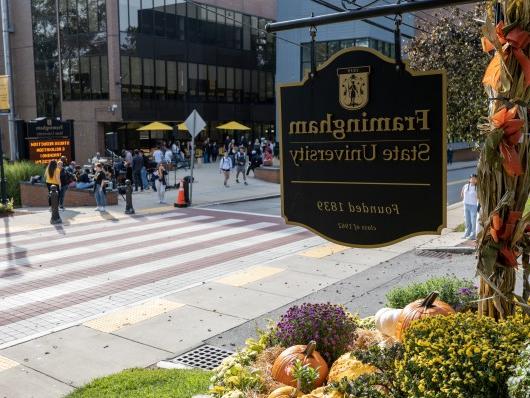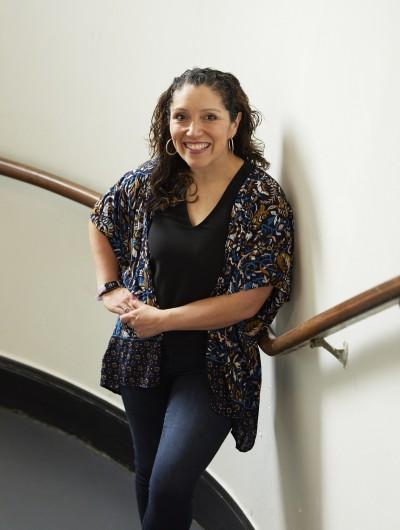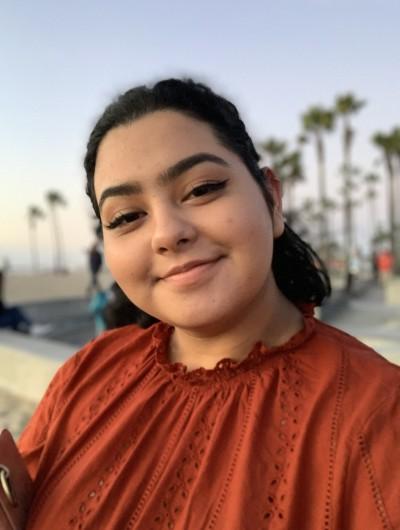课程是建立在与发展相适应的原则和实践的基础上,以提供身体素质, emotional, social, language, literacy, 并通过综合方法促进所有儿童的认知发展. 游戏是孩子们学习和发展的主要工具, thus, 儿童发展实验室项目的基石.
儿童发展实验室在课堂组织中采用中心方法. 孩子们可以决定他们每天想去哪个中心. Our centers include writing, art, math, science, blocks, puzzles and games, dramatic play, library, listening center, and music. 孩子们在课堂上使用的阅读和写作材料可以在中心找到. 教师和我们的幼儿教育学生与中心的个别儿童和小组一起指导和支持学习, exploration, and discovery. Whole class activities, 比如早上或下午的会议开始上课和循环时间, are included in the daily schedule.
课程的内容是根据孩子们的兴趣和需要选择主题. Themes, curriculum units, 并计划特别活动,关注广泛的发展兴趣和能力. 课程以反映家庭价值观的方式实施, experiences, language, 并从社区的角度增强每个孩子对不同种族的人的理解和欣赏, cultural, and socioeconomic backgrounds. 儿童发展实验室也遵循马萨诸塞州学龄前经验指南, Massachusetts Curriculum Frameworks, 以及全国幼儿教育协会制定课程的指导方针, themes, and activities.
Curriculum
By engaging in art activities, 学生在自我表达等方面得到发展, fine motor skills, pre-writing, language, cooperation, creativity, critical thinking, and social interaction. 此外,学生们还了解了构成他们世界的颜色和纹理. Here at the Child Development Lab, we offer art centers as part of the whole, child centered curriculum, 旨在鼓励孩子通过自我表达来探索他们的世界.
图书馆,写作中心,大声朗读,和会议时间让学生沉浸在读写. 这些中心通过大声朗读和有意义的写作活动来培养对单词和语言的热爱. 强调口语和词汇的发展,因为它通常是早期阅读的前兆. Students use imagination, self-expression, 并具备从事写作活动的沟通能力, 从他们自己的个人经历. 孩子们在写作时有机会将他们的新兴识字技能运用到工作中, 在读出单词时运用他们对字母发音对应的知识. 老师鼓励学生描述和写下他们的经历, interests, and stories in their own words. 学生们喜欢与全班同学分享他们的故事,甚至把它们表演出来!
通过参与适合发展的有机数学活动,如数数, sorting, categorizing, measuring, 探索形状和数字关系, 学生发展对数学概念的理解. 学生也获得了合作领域的知识, geometry, place value, social interaction, problem solving, sharing, language and communication, fine motor skills, and patterns. 所有这些都根植于我们周围的世界. 我们的数学中心让学生有机会在自然中探索数学概念, age appropriate, 以及以学生为导向的激发思考的方式, reasoning, 解决问题:终身学习的技能.
当学生参与与发展相适应的科学活动和实验时,他们发展了科学概念和技能,如观察技能, data collection, predictions, language and vocabulary, team work, problem solving, critical thinking skills, reasoning, 并冒着风险提出问题并寻求答案. 儿童发展实验室的科学中心经过精心设计,以促进这些技能的发展.
戏剧表演是我们孩子课程的基石, 想象力和创造力占据中心舞台. In this engaging content area, 鼓励孩子们通过假装游戏来探索不同的角色和场景. By dressing up, acting out stories, and using props, they develop language skills, social competence, and emotional understanding.
我们的课程非常强调感官游戏, 哪个通过动手活动刺激孩子的感官. 这个区域包括各种触觉体验, such as sand and water play, finger painting, 探索不同的纹理和材料. 感官游戏不仅可以提高精细运动技能和手眼协调能力,还可以通过让孩子实验和发现来支持认知发展.
户外活动是我们孩子课程中不可或缺的一部分, 提供锻炼身体的机会, exploration, and a connection with nature. 我们的计划包括一系列的活动,如散步和操场游戏. These activities promote gross motor skills, physical health, and an appreciation for the environment.



